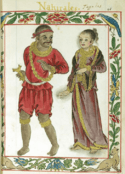Pulilu facts for kids
| Pre-colonial history of the Philippines |
| Barangay government |
| Ruling class (Maginoo, Tumao): Apo, Datu, Lakan, Panglima, Rajah, Sultan, Thimuay |
| Middle class: Timawa, Maharlika |
| Serfs, commoners and slaves (Alipin): Aliping namamahay, Alipin sa gigilid, Bulisik, Bulislis, Horohan, Uripon |
| States in Luzon |
| Caboloan |
| Cainta |
| Ibalon |
| Ma-i |
| Rajahnate of Maynila |
| Namayan |
| Tondo |
| States in the Visayas |
| Kedatuan of Madja-as |
| Kedatuan of Dapitan |
| Rajahnate of Cebu |
| States in Mindanao |
| Rajahnate of Butuan |
| Rajahnate of Sanmalan |
| Sultanate of Sulu |
| Sultanate of Maguindanao |
| Sultanates of Lanao |
| Key figures |
|
| The book of Maragtas |
| Religion in pre-colonial Philippines |
| History of the Philippines |
| Portal: Philippines |
Pulilu was a Prehispanic polity centered at Polillo, Quezon and was mentioned in the Chinese Gazeteer Zhufan zhi 諸蕃志 (1225). It is described as politically connected to the nation of Sandao "三嶋" at the Calamianes which itself was a vassal-state to the larger country of Ma-i "麻逸" centered in Mindoro. Its people were recorded to be warlike, and prone to pillaging and conflict. In this area, the sea is full of coral reefs, which have wavy surfaces that resemble decaying tree trunks or razor blades. Ships going by the reefs must be ready to make sharp maneuvers to avoid them because they are sharper than swords and halberds. Red coral and blue langgan coral are also produced here, however they are quite difficult to find. It is also similar to the nation of Sandao in local customs and trade products. The chief export of this small polity are rare corals.
See also
 In Spanish: Pulilu para niños
In Spanish: Pulilu para niños


